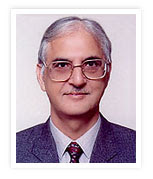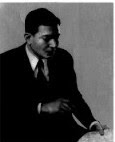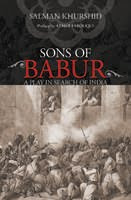S H Khan - soft voice, hard talk
In 1998, when Serajul Haq Khan retired as the chairman and
managing director of Industrial Development Bank of India (IDBI) he said in an
interview that he looks forward to contribute at the macro level. Apparently,
this did not go down well with some of the industrialists who asked him whether
working in the private sector would be tantamount to not contributing to the
economy or the country. But Seraj uncle's philosophy was clear – after being at the
helm of IDBI, the premier development financial institute (DFI) which was also
the promoter of other remarkable, path breaking institutes like CARE, NSE to
name a few, he wanted to stay clear of executive positions in the private
sector.
Till his sudden passing away on January 12, he was
associated with few companies as an independent, non-executive director. In
fact, he was in Pune in connection with his role as chairman of the audit
committee of the Bajaj group when he died. He was 78. He was brought to Mumbai,
a city where he built his career and had his family, and was buried at the Bada Kabrastan on
Wednesday (January 13) afternoon. In his illustrious career he had been on the boards of several companies like UTI, Air India, LIC, Indian Airlines, Exim Bank, IDFC.
Born and brought up in dusty and remote villages of UP’s Ghazipur
district, Seraj uncle was a consistent topper all through his academic life.
After attending the local school, he went on to do Masters in Commerce from
University of Bihar where he was a gold medalist. A famous line about him was
that he was inseparable from books even while on the football field! I am not
sure if he had planned a career in banking but after a short stint as a
lecturer in a Bihar college he came to Mumbai and joined the Reserve Bank of
India (RBI) as a probationary officer in 1961. For young budding economists and
bright commerce graduates, the RBI in those days was a magnet. In 1965-66, he
became a part of the newly established Industrial Development Bank of India
(IDBI), which grew under the shadows of the RBI. I am sure he must have had
considerable difficulty explaining to people that one couldn’t open a savings
account in the ‘bank’ where he was an officer!
Over the years IDBI, which was formed by an act of Parliament, became the premier DFI in India. After
being a subsidiary of RBI, it ultimately became a wholly-owned undertaking of
the government of India. Seraj uncle too rose in the hierarchy. He became
executive director in 1986, managing director in 1992 and chairman and managing
director in 1993. The legendary S S Nadkarni had spotted the talent of Seraj
uncle and favoured him to succeed after his retirement. This spoke volumes of
the talent and industriousness of Seraj uncle because, as is well-know, IDBI at
that time could boast of the best, which included most notably Dr R H Patil –
NSE’s main architect.
But there was a minor hiccup to his elevation. While he had
the internal support from IDBI, there was a possibility, which quickly died
down, of an outsider pipping him to the post. In 1993, after the retirement of
Nadkarni as chairman of IDBI, he became the acting chairman. While it was
widely believed that he would ultimately succeed Nadkarni, who had groomed him
for the takeover, there was a possible coup in the making. Taking advantage of its close
proximity to certain key politicians of the day, a business house began to
actively lobby on behalf of the chairman of another bank to head IDBI. But
ultimately merit ruled over politics, and Seraj uncle was appointed to the much
deserved post of chairman in December 1993. By this time a whole generation of
people, at least in eastern UP and parts of Bihar, had become aware of IDBI - and
why one couldn’t open a savings account there.
I do not have any early memories of Seraj uncle, as he seems
to be always present from the time I can remember. He was a good friend of my
late father and I vividly remember several evenings in his flat. On some
occasions (perhaps on Eid) he would come to our house and then my father would
accompany him back. Those were the days of VCRs, and a distinct advantage of
going to his house for the kids was the access to a well-stocked video library in the neighborhood. During the 1992-93 communal riots in
Mumbai, he came to our house suggesting that children and the women accompany
him. We didn’t go at that moment, but the situation deteriorated, and the
very next day we shifted to his house, where we stayed for a good 10-12 days.
 |
| Seraj uncle at a reception @urdufigures.blogspot.com |
In the next few years, under his dynamic leadership, he took
IDBI to greater heights in terms of productivity and profitability. In its category, IDBI was among the top 10 in the world. Most
importantly he strongly believed in the transformation of DFIs into banks, a
thought that had first gained currency during Nadkarni’s reign. The RBI
constituted a committee under his chairmanship known as the Khan committee to
look into ‘universal banking’. This report stands out as one of the highlights
of his career. It was this committee, which had as its members K V Kamath and M
S Verma among others, that first proposed the conversion of DFIs into banks. But
ironically, it was ICICI that beat IDBI in the game and moved ahead. Of course,
one of the reason for the quick transformation of ICICI was that it was not
tied down, as IDBI was, to government regulations and had more flexibility.
One outcome of this overarching government control was the
comparatively low salaries of the staff at IDBI. “If you pay peanuts you will
get monkeys,” he reminded the government. Being an insider, he tried his best to
delink the salary scale at IDBI to government norms. This certainly added to
his popularity and respect at IDBI. He was also very happy with the fact that
it was IDBI that acted as promoter to institutes like SIDBI, NSE, and the rating agency
CARE. He was also the chairman at both NSE and CARE and always spoke of how the
NSE convincingly left BSE way behind.
In 1998-99, when I was at Elphinstone College, Dr Sonu
Kapadia, the editor of the College magazine and the last of the distinguished
names at the college, was looking for contributions from students. I had few
articles in my mind, and was fine-tuning them, when I read in The Economic
Times how Seraj uncle completed his innings at IDBI without knowing his
successor. I suggested Dr Kapadia an article on the importance of HRD and her
first reaction was that it should not be related to the optional paper I was
studying! I told her it would be a journalistic piece and was very excited to
see the magazine carrying the article mentioning how governmental indifference
and politics was clouding the naming of successors at key institutes, along
with other issues. (During the same period the announcement of a successor to
another key post was delayed).
Seraj uncle’s career was seen in remarkably different ways
by different people. Some would label him as only among the few from UP/Bihar
to occupy a high position in the financial and banking sector. For many he was representative
of the fact that Muslims too can reach coveted positions. For votaries of Hindi
he was a good example of why convent or English education was not the only way
to success. And there indeed was a powerful message in the way his career
shaped. It epitomised the importance of hard work and meritocracy. His refined
manners and good looks added to his charming personality, which also at times
confused people. A foreign pink paper once described him as ‘aristocratic’!
Despite his busy schedule and travel, he always found time to visit his native village. He never lost touch with his roots and took a keen interest in the affairs of his extended relatives and the community. He fondly remembered his friends from his school days hailing from different villages. In the later years he patronised an NGO working in the field of education and social empowerment in Mumbai. “Hasib sahab (Abdul Hasib Siddiqui, former executive director, RBI) told me about them. They are doing good work,” he told me after I asked him about his picture with kids in the NGO's newsletter. In the last few years I would occasionally call him. “So now you have become an NRI,” he would say. When I met him during my last visit to India I asked him that he should write about his life and career. “I have never thought about it. Also, if I write one it has to be an honest account, but considering that several people I worked with are still alive I don’t think I will be able to do justice. So it’s only better that I do not write.”
Despite his busy schedule and travel, he always found time to visit his native village. He never lost touch with his roots and took a keen interest in the affairs of his extended relatives and the community. He fondly remembered his friends from his school days hailing from different villages. In the later years he patronised an NGO working in the field of education and social empowerment in Mumbai. “Hasib sahab (Abdul Hasib Siddiqui, former executive director, RBI) told me about them. They are doing good work,” he told me after I asked him about his picture with kids in the NGO's newsletter. In the last few years I would occasionally call him. “So now you have become an NRI,” he would say. When I met him during my last visit to India I asked him that he should write about his life and career. “I have never thought about it. Also, if I write one it has to be an honest account, but considering that several people I worked with are still alive I don’t think I will be able to do justice. So it’s only better that I do not write.”
While he may have chosen not to write about his experiences,
any serious volume on the history of project financing or financial institutions
in the post-Nehruvian era will be incomplete without the mention of IDBI and
his stewardship. He had a soft, very distinct and distinguishable voice - which is difficult to forget. Sadly, that voice will never be heard now.
He is survived by his wife, two daughters and two sons.



Good piece
ReplyDeleteGood coverage for a great man ...journey of a common man from village to mumbai and become chairman of IDBI....very inspiring and true spirit and dedication....
ReplyDeleteReally we have lost a legend and a soft voice which has created a huge vaccum .
ReplyDeleteReally we have lost a legend and a soft voice which has created a huge vaccum .
ReplyDeleteThanks for this write up. Indeed we have lost a legendary....May Allah grant him peace in Akhira
ReplyDeletei am very glad to read the biography of late serajul Haque Khan Saheb. he was best iconic of kamsaró'Bar Ghazipur UP and
ReplyDeletethis is learning for us
DEATH OF AN STALWART
ReplyDeletewhen I retired from Army I was instructed in Usia to meet him. I PHONED HIM. The receiptionist picked up the phone ----who?
I am Capt khan and want to talk to S H KHAN
Sorry there is no such name in the office
What ? How it is possible , I know him, he is from my village
I replied
O the name you have told is the name of our chairman
Yes, Yes I want to talk to the chairman
But for what ?
Madam I got no business with him but I am from his village
Just wait ---------- and a soft sound has come hello
Sir I am Capt ZAINUL ABEDIN KHAN born in Akhni village and brought up in Usia I want to meet you sir
Pl come to my residance at Cuff Parade on Sunday
On the coming sunday I and Aftab Ahmad Khan GM of an wing of ONGC went to him to meet him .On reaching there he well come us , it was the first time that I met him , a tall , lean and thin with soft voice .I was thinking that a such big figure but how he is soft like flower . In the mean time a call has com from AMITABH BACHHAN requesting him to visit his house Jalsa . I was sitting closely with the STALLWART means Khan Saheb and listening the voice of phone . Amitabh further told him that I want to come to your house but I fear with the crowed
Khan saheb smiled and told him ," No matter of coming and going and meeting to each other, but frankly you please tell me the purpose
Amitabh saheb was talking of his company ABCL (which is closed now )
Khan saheb told him immediately Dear I grant loan to Industry and NOT TO THE FILM INDUSTRY In reply Amitabh laughed
After a pause
Aftab Ahmad Khan A high official of ONGC put his plan and drawing front of him of heavy project . in which he was interested to start with his help
Khan Saheb simplyvtold him I AM NOT INTERESTED
The discussion was closed before it took place
Then I put my requst , Sir I am working as Chief Security Officer in RIZVI and doing up and down from Pune to Bomnay. You please adjust me some where in Pune
He replied , if you want to join BAJAJ just go to Rahul Bajaj and tell my name you will be adjusted some where, but I feel that you do not know the politics of the Industries , you are better placed in Rizvi, you continue here . In the later stage I become Registrar of the Rizvi College , and gotcrespect and dignity
MY JUDGMENT The man to whom just I called an stall wart was clear in his decesion and within no tim there was a clear decision like any Dewta
The indian muslims lost a big persolty which can not be recoved never and never
I salute to him
Thanking you
ZAINUL ABEDIN KHAN
Mr zainul sir I want to contact you sir to know more about you and Mr serajul haq saheb. I am grand-son of Mr shajahan khan in qurrah village in gazipur district.
DeletePlease contact me sir
Believe him, this is some of really great efforts to promote urdu literature related personalities, Thumbs Up Bro... Really
ReplyDelete